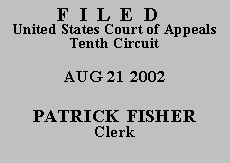

| MARSHALL DEWAYNE WILLIAMS,
Petitioner - Appellant, |
|
| v. | |
| MICKEY E. RAY, Warden,
Respondent - Appellee. |
|
Petitioner Marshall DeWayne Williams appeals the district court's dismissal of his 28 U.S.C. § 2241 petition for habeas corpus. We affirm.
Williams was convicted of three counts related to the planting of a pipe bomb. On direct appeal, the court affirmed his convictions, but vacated his life sentence and remanded for resentencing on count one. United States v. Williams, 775 F.2d 1295 (5th Cir. 1985). On remand, the district court sentenced him to 99 years on count one. Williams filed a motion to vacate sentence pursuant to 28 U.S.C. § 2255, which was denied. On June 29, 2001, he filed this § 2241 petition, contending his Fifth Amendment due process rights were violated because the government failed to present sufficient evidence. The magistrate court recommended that the petition be dismissed because Williams was attacking the validity of his conviction and he had failed to show that § 2255 was inadequate or ineffective. The district court adopted the magistrate's recommendation and dismissed the petition.
A § 2241 petition attacks the execution of a sentence rather than its validity. Bradshaw v. Story, 86 F.3d 164, 166 (10th Cir. 1996). A § 2255 petition attacks the legality of detention. Id. The exclusive remedy for testing the validity of a judgment and sentence, unless it is inadequate or ineffective, is provided in § 2255. Caravalho v. Pugh, 177 F.3d 1177, 1178 (10th Cir. 1999). A prisoner's lack of success in a prior § 2255 motion is insufficient to establish that the remedy is inadequate or ineffective. Bradshaw, 86 F.3d at 166.
We have carefully reviewed Williams' appellate brief and the documents contained in his appendix filed with this court. We agree with the district court that he has failed to show that the remedy under § 2255 is inadequate or ineffective.
AFFIRMED. The mandate shall issue forthwith.
Entered for the Court
Mary Beck Briscoe
Circuit Judge
*.This order and judgment is not binding precedent, except under the doctrines of law of the case, res judicata, and collateral estoppel. The court generally disfavors the citation of orders and judgments; nevertheless, an order and judgment may be cited under the terms and conditions of 10th Cir. R. 36.3.